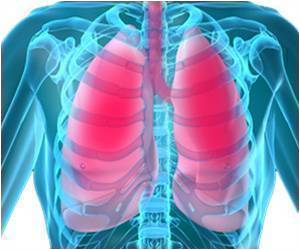One of the leading causes of cancer deaths worldwide is Non-small cell lung cancer (NSCLC). Current therapies that target cellular kinases have been effective for some patients.

In this issue of the Journal of Clinical Investigation, MinGyu Lee and colleagues at MD Anderson Cancer Center evaluated histone methylation modifications in NSCLS cell lines and determined that the histone demethylase KDM2A was upregulated in NSCLC cell lines.
Furthermore, induced KDM2A expression increased cell proliferation and invasiveness through activation of the ERK1/2 signaling pathway. Evaluation of tumors from NSCLS patients uncovered a correlation between increased levels of KDM2A and poor prognosis.
This study suggests that therapies targeting KDM2A may benefit a subset of NSCLS patients.
Source-Eurekalert
 MEDINDIA
MEDINDIA




 Email
Email










